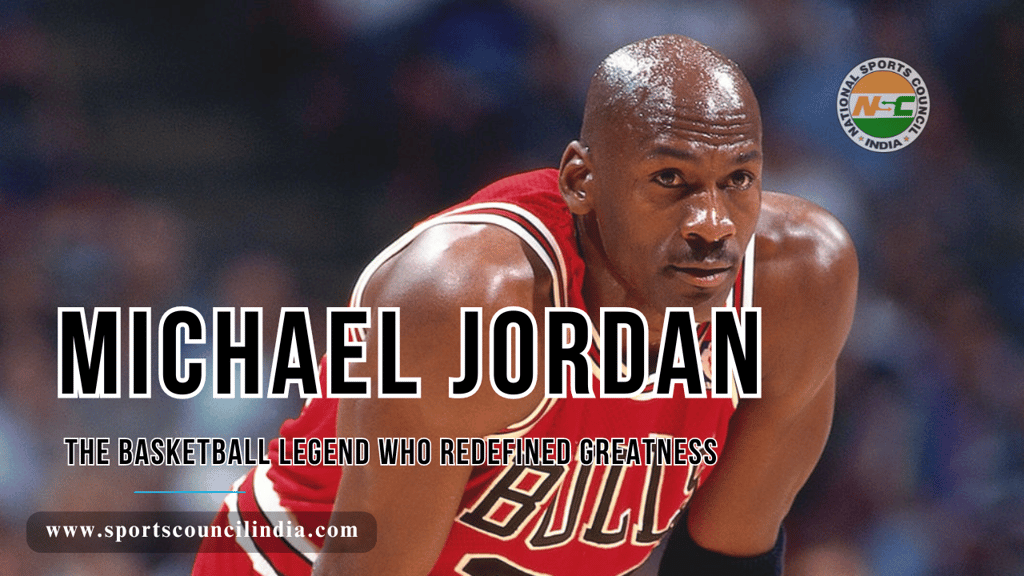Michael Jordan: The Basketball Legend Who Redefined Greatness
9/18/20248 min read


Michael Jordan: The Basketball Legend
Michael Jordan was born on February 17, 1963, in Wilmington, North Carolina. He was the middle child in a family of five children, with a supportive and competitive environment that shaped his character. His father, James Jordan Sr., played a pivotal role in nurturing Michael’s early interest in sports, particularly basketball. Through countless games in the backyard and encouraging advice, his father instilled a sense of determination and a strong work ethic in him. Michael's mother, Deloris, provided the emotional support necessary for a child with big aspirations.
During his early years, Jordan exhibited a natural athleticism and keen competitiveness, participating in various sports, but basketball quickly became his focus. His high school journey at Emsley A. Laney High School was marked by both challenges and triumphs. Although he faced initial setbacks, including being cut from the varsity basketball team in his sophomore year, Jordan responded with relentless dedication. He trained rigorously, eventually earning a spot on the team and showcasing his scoring ability and defensive skills. His remarkable talent did not go unnoticed, and he later earned a scholarship to the University of North Carolina (UNC).
At UNC, Jordan's collegiate career began in earnest, propelling him into the national spotlight. Under the guidance of legendary coach Dean Smith, Jordan honed his game and matured as a player. His talent was evident as he played a critical role in leading the Tar Heels to the NCAA Championship in 1982, with a memorable jump shot in the final moments against Georgetown. This victory solidified Jordan’s reputation as a clutch performer. Throughout his time at college, he embraced mentorship from his coaches and teammates, nurturing not just his skills but also his leadership potential. The experiences gained in these formative years laid the foundation for Jordan’s future success in the NBA and beyond.
The Rise of a Superstar in the NBA
Michael Jordan's journey into the National Basketball Association (NBA) began in 1984 when he was selected as the third overall pick by the Chicago Bulls in the NBA Draft. This marked the beginning of an illustrious career that would not only elevate the status of the Bulls franchise but also revolutionize the sport of basketball itself. Upon entering the league, Jordan quickly showcased his exceptional skills, which included an impressive scoring ability and remarkable athleticism, setting him apart from his contemporaries.
During his rookie season, Jordan faced the challenges typical for newcomers in the high-pressure environment of the NBA. Despite these obstacles, his talent shone through, earning him recognition as one of the league's brightest prospects. He made an immediate impact by averaging 28.2 points per game, an offensive output that firmly established him as a lethal scoring machine. His dynamic style of play, characterized by acrobatic dunks and a sophisticated shooting repertoire, captivated fans and drew significant media attention.
Jordan's rookie year culminated in him receiving the NBA Rookie of the Year award, a testament to his extraordinary performance amidst the physical and mental challenges inherent in adapting to professional basketball. This accolade not only cemented his status as a rising star but also laid the groundwork for a future filled with accolades and milestones. His dedication to excellence, relentless work ethic, and competitive spirit became evident as he began to redefine what it meant to be a basketball player in the league.
As he navigated the initial stages of his NBA career, Michael Jordan's potential became increasingly apparent. The combination of his instinctive scoring prowess and his ability to perform under pressure turned the attention of fans, ensuring that he quickly emerged as a player to watch in the NBA.
The Chicago Bulls Dynasty
The Chicago Bulls dynasty of the 1990s stands as one of the most remarkable achievements in the history of professional basketball, largely due to the unparalleled leadership of Michael Jordan. This era, characterized by dominance and excellence, resulted in six NBA championships in eight years, underscoring Jordan’s contribution to the team's esteemed legacy.
In the early 1990s, the Bulls, alongside pivotal players such as Scottie Pippen and Dennis Rodman, showcased a level of teamwork and synergy that was crucial for their success. Pippen's versatility and defensive prowess complemented Jordan's scoring ability, while Rodman provided tenacious rebounding and unmatched intensity. Under the guidance of coach Phil Jackson, the implementation of the triangle offence transformed the Bulls into a formidable force, creating an environment where each player's strengths were maximized, leading to a cohesive and dynamic team.
Highlighted by unforgettable playoff performances, the Bulls' journey included memorable moments that have become etched in the annals of basketball history. One such occasion is the iconic 'Flu Game' during the 1997 NBA Finals, where Jordan's extraordinary determination allowed him to score 38 points despite battling illness, leading the Bulls to a critical victory. Furthermore, his last-second shots, particularly in the 1998 Finals against the Utah Jazz, showcased not only his skill but also his clutch performance under pressure, solidifying his status as a basketball legend.
The Chicago Bulls dynasty exemplified greatness, with Michael Jordan at its helm, establishing a standard of excellence that remains unmatched. This legacy continues to inspire athletes and fans alike, reminding all of the profound impact one player can have on a team's success across a decade filled with triumphs.
The Competitive Drive and Work Ethic
Michael Jordan's journey to becoming a basketball icon is intrinsically tied to his unparalleled competitive drive and rigorous work ethic. Throughout his career, he consistently exhibited an insatiable desire to succeed, setting a benchmark that not only propelled his game but also inspired his teammates and rivals alike. Jordan's competitive nature was evident even in his early years; he famously refused to be outworked, spending countless hours honing his skills on the court long before his peers arrived for practice. This dedication was not merely a personal ambition but a philosophy he instilled in those around him, often pushing them to levels they had previously deemed unattainable.
His training regimen was famously gruelling. Known for waking up at dawn to work on his shooting and endurance, Jordan's discipline was a crucial factor in his legendary status. Stories circulated about his relentless pursuit of perfection, including a commitment to conditioning that ensured he remained at the top of his game, even in physically demanding playoff scenarios. His mantra of “never let up” became a guiding principle not just for himself, but also served as a rallying cry for teammates who observed his dedication firsthand.
Air Jordan: The Signature Moments
Michael Jordan, a name synonymous with basketball excellence, is celebrated not just for his skills but for a collection of signature moments that have left an indelible mark on the sport. These iconic plays, often referred to as “Air Jordan Moments,” showcase his unparalleled athleticism and competitive spirit, contributing significantly to his status as a global sports icon. One of the most memorable instances is the legendary slam dunk from the free-throw line during the 1988 NBA Slam Dunk Contest. This breathtaking display of athleticism not only won him the contest but also became a defining moment in sports history, capturing the imaginations of fans worldwide.
Another unforgettable moment occurred in the 1997 NBA Finals, often labelled “The Flu Game.” Here, despite suffering from illness, Jordan delivered a jaw-dropping 38 points against the Utah Jazz, solidifying his legacy as a player who thrived under pressure. His game-winning shot in the 1998 Finals, often hailed as “The Last Shot,” further underscored his clutch performance ability. This shot was not merely a game-winner; it was a poetic conclusion to his tenure with the Chicago Bulls, encapsulating the drama of the moment.
The impact of these moments extends well beyond the confines of the basketball court. They have sparked inspiration and admiration among countless fans and aspiring athletes, effectively popularizing basketball on a global scale. The “Air Jordan” branding itself has transcended sports, becoming a cultural phenomenon that intertwines fashion, lifestyle, and athletic prowess. Jordan's signature moments continue to resonate, illustrating not only his greatness as a player but also his profound influence on sports culture worldwide. Such iconic performances remain a testament to how one athlete can redefine what it means to be great.
Cultural Impact and Legacy
Michael Jordan's influence transcends the basketball court, establishing him as a global icon. His impact on popularizing the National Basketball Association (NBA) internationally is unparalleled. Before Jordan's emergence, professional basketball was primarily confined to American audiences. However, through his exceptional talent and charisma, Jordan inspired a generation of fans worldwide, effectively transforming the NBA into a global phenomenon. His participation in games, as well as his vibrant personality, contributed to the league's expansion, particularly during the 1990s, leading to increased viewership and international fandom.
In addition to promoting the sport, Jordan revolutionized the relationship between athletes and brand endorsements. His partnership with Nike to create the Air Jordan sneaker line not only set new standards for sports marketing but also altered the fashion landscape. The Air Jordan brand became synonymous with street culture and athleticism, enabling Jordan to break boundaries beyond basketball. This innovative marketing strategy helped to establish the pivotal connection between celebrity athletes and consumer goods, leading to massive commercial success and a template for future collaborations.
Moreover, Michael Jordan's influence extended into various forms of media and culture. Documentaries, films, and television shows that featured him contributed to his status as a cultural phenomenon. His persona bolstered the perception of athletes not just as competitors but as influential figures capable of shaping cultural trends and societal norms. Jordan's ability to merge sports, fashion, and lifestyle solidified his legacy as more than just an athlete; he became a symbol of success, aspiration, and cultural evolution.
Overall, Michael Jordan's multifaceted impact is reflected in the way he redefined greatness, setting a precedent for future athletes to follow in sports, fashion, and marketing. His legacy continues to influence the modern sports and fashion industries, showcasing the enduring power of an athlete as a cultural icon.
Inspiration for Future Generations
Michael Jordan's legacy extends far beyond the basketball court; it reverberates through the lives of countless athletes and fans who continue to draw inspiration from his remarkable journey. His ascent to greatness was marked by resilience, demonstrating that overcoming obstacles is essential on the path to success. This lesson is crucial for both aspiring athletes and individuals in diverse fields, as it emphasizes the importance of bouncing back from setbacks. Jordan faced numerous challenges during his career, yet each setback was met with an unwavering determination to improve and excel, a quality that any individual can emulate.
Additionally, Jordan's relentless pursuit of excellence serves as a powerful reminder of the value of hard work and dedication. He was known for his rigorous training schedule and an insatiable drive to be the best, which illustrates the significance of commitment in achieving one's goals. This determination encourages future generations to adopt a strong work ethic, fostering a mindset oriented toward continual growth and improvement. As they navigate their unique journeys, individuals can apply Jordan's example by setting clear goals and persisting through adversity.
Moreover, Jordan’s leadership both on and off the court showcases the importance of teamwork and collaboration. His ability to elevate those around him and inspire teammates to perform at their best reflects the impact of positive influence in any community. The lessons learned from his career underline the significance of building strong relationships and supporting each other in pursuit of collective goals, a principle that is invaluable in any endeavour.
Michael Jordan's story is not merely a tale of athletic prowess; it is a blueprint for greatness that encourages individuals to strive for their best, embrace resilience, and understand that true success is a journey marked by struggle, determination, and the commitment to uplift others.
